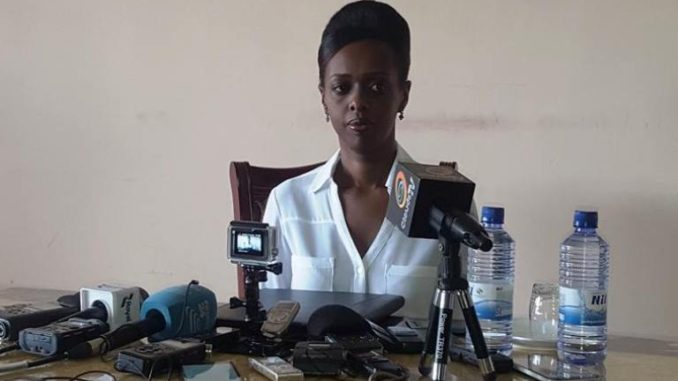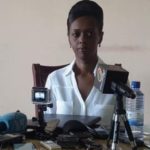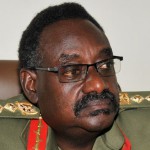Prosecutors in Rwanda have charged Diane Rwigara, the accountant who tried to challenge the veteran Rwandan leader Paul Kagama in elections this year, with inciting insurrection and forgery.
Rwigara was detained 10 days ago and faces a lengthy jail sentence. Kagame has won international praise for the stability and economic development he has brought Rwanda since the 1994 Genocide, when an estimated 800,000 people were killed, but has also been accused of running an authoritarian, one-party state.
Kagame won the election in August with more than 98% of the vote, securing a third term in office and extending his 17 years in power.
Electoral authorities barred Rwigara, 35, from standing in August, saying she had not submitted enough supporters’ signatures and that some of the names she did submit belonged to dead people.
The US-educated activist has repeatedly accused Kagame, 59, of stifling dissent and criticised his Rwandan Patriotic Front’s near total hold on power.
Rwigara’s mother, Adeline, and sister Anne have also been charged with incitement and “discrimination and sectarianism”, Faustin Nkusi, a spokesman for the government prosecutor, said. He said the cases were filed in court on Tuesday and a trial date had yet to be set.
The three women were first taken from their home in Kigali, the Rwandan capital, on 30 August on tax evasion allegations related to the family’s tobacco company. That charge was not listed in those filed on Tuesday.
Rwigara’s activism began when she publicly accused the government of involvement in the death of her father, businessman Assinapol Rwigara, in a road accident in 2015, contacting foreign embassies in Kigali and international human rights organisations, as well as petitioning the President. Many question the allegation, but there has been no official investigation.
She has been a rare critical voice inside Rwanda, repeatedly raising the allegations of extrajudicial assassinations that exiled critics and international organisations such as Human Rights Watch claim the government frequently carries out against its enemies.
When Rwigara announced her intention to run against Kagame, busloads of young Rwandans attended her meetings while journalists packed her press conferences. This rattled the ruling party and leaders, observers say.
Nude photos, which appeared to be of her but which Rwigara said had been manipulated, were subsequently published on social media in what observers assumed was an effort to undermine her credibility.
Rwigara’s brother Aristide, who lives in the US, said charges against the three women were politically motivated and intended to punish the family for the attempted presidential bid. He was not reachable for comment on Wednesday.
Nkusi said the legal proceedings were not related to politics. Kagame won polls in 2003 and 2010 with 93% and 95% of the votes cast. Only two opposition candidates were allowed to stand against him in August.
Along with Rwigara, several leaders and members of the Forces Démocratiques Unifiées-Inkingi opposition party have also been detained in recent weeks.
Eight opposition activists have been charged with forming an irregular armed group and offences against the president, campaigners say, and dissidents have described receiving beatings and death threats from security officials.
“The government is using its standard playbook to crush dissent … Rwanda’s donors and other international actors should condemn this blatant clampdown on the political opposition,” said Ida Sawyer, the Central Africa director at Human Rights Watch.








